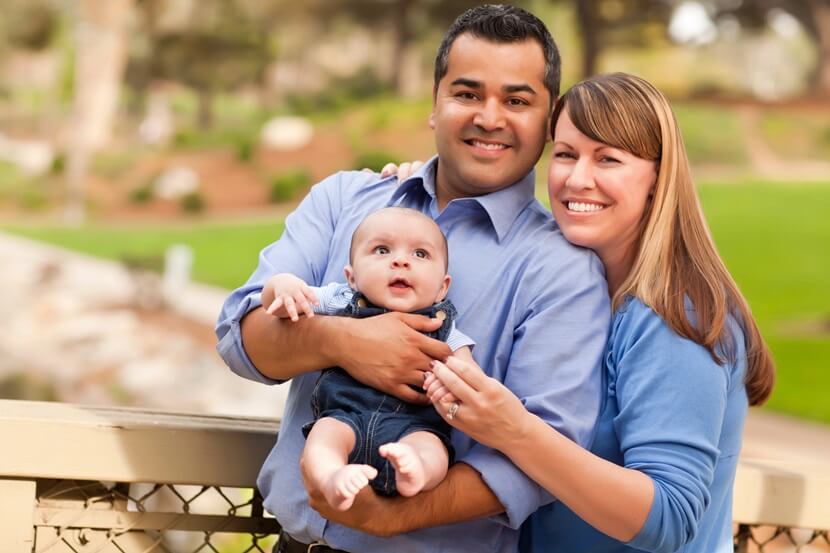Want to bring a family member to the U.S.? If you’re in Laredo, Texas, the first step is filing Form I-130, the Petition for Alien Relative. It’s the key to starting the immigration process and helping your loved one get lawful status.
Today, we’ll discuss how to file Form I-130, from who qualifies and what documents you’ll need, to where to file and what happens next. We’ll also cover common questions and offer tips to make the process smoother.
Understanding Form I-130
Form I-130 is the government’s way of recognizing certain family relationships under U.S. immigration law. Filing this form is necessary to establish a connection between a U.S. citizen or lawful permanent resident and a foreign relative. It’s a formal invitation to join the family table but with a lot more paperwork.
It’s essential to understand what this form does and what it doesn’t do. Approval of Form I-130 does not grant a visa or lawful status. Instead, it qualifies the family member to apply for a visa or adjustment of status. It places the relative in line, but additional steps must be followed before they can legally live in the U.S.
Understanding the purpose of Form I-130 ensures that expectations are apparent from the beginning. The next critical step is determining if the petitioner qualifies to file.
Determining Eligibility
Eligibility to file Form I-130 depends entirely on the petitioner’s immigration status and their relationship to the family member. This is not an open invitation, only specific relatives can benefit under immigration law. The United States has clear rules about who can file and for whom.
There are two main categories of petitioners: U.S. citizens and lawful permanent residents (LPRs). Each has different filing privileges.
Eligibility For U.S. Citizens
U.S. citizens have broader filing rights under immigration law. They may file Form I-130 for the following relatives:
- Spouse.
- Unmarried children under 21.
- Unmarried sons or daughters 21 or older.
- Married sons or daughters of any age.
- Parents (the petitioner must be 21 or older).
- Brothers or sisters (the petitioner must be 21 or older).
The petitioner must maintain a valid U.S. citizenship status when filing and throughout the process. This category benefits from faster visa availability, particularly for immediate relatives such as spouses, parents, and unmarried children under 21.
Eligibility For Lawful Permanent Residents (LPRs)
Lawful permanent residents have more limited filing options. They may file Form I-130 for their spouse, unmarried children under 21, or unmarried sons or daughters who are 21 years old or older.
If an LPR becomes a U.S. citizen while the application is pending, the petition can be upgraded to reflect the new status. Confirming eligibility is essential before gathering documents or preparing forms. The next step is organizing the required paperwork.
Filing The Form I-130
Filing Form I-130 requires careful attention and proper documentation. Many petitions face delays simply because something was missing or completed incorrectly. Taking the time to prepare the petition correctly can make the process smoother and quicker.
Gathering Necessary Documentation
The first step in filing Form I-130 is assembling the proper documents. USCIS requires evidence to confirm the petitioner’s immigration status and the family relationship. This may include copies of birth certificates, marriage certificates, or legal adoption records.
Any documents in a foreign language must be submitted with certified English translations. Petitioners should ensure that every document is clear, legible, and valid. Submitting incomplete or unclear paperwork can trigger a Request for Evidence (RFE), which can delay the process. It’s advisable to make copies of everything before filing for your personal records.
Completing The Form
Form I-130 must be completed with accurate and up-to-date information. Every section requires careful reading and honest answers. USCIS may reject petitions with missing fields or inconsistent details. It is critical to double-check names, dates, and addresses.
Errors or incomplete answers can lead to delays or even denials. Petitioners should use the latest form available on the USCIS website. If unsure how to answer specific questions, A skilled visa attorney in Laredo can prevent mistakes.
Paying The Fee
Once the form and supporting documents are ready, the next step is to pay the filing fee. Payment methods include check, money order, or credit card, depending on whether the form is filed online or by mail. It is essential to adhere to the payment instructions strictly to avoid rejection.
Submitting incorrect payment is one of the most common reasons applications are rejected at intake. Confirming the correct amount and method will keep the process moving forward without unnecessary delays.
Even with careful preparation, many petitioners still question the family-based immigration process. Concerns about processing times, eligibility requirements, and potential obstacles are common. Understanding the answers to frequently asked questions can help applicants avoid mistakes and navigate the process more confidently.
Addressing FAQs On Family Immigration
The I-130 process can raise many questions, especially for those handling it for the first time. Below are answers to some of the most common questions related to filing Form I-130.
Can I File Form I-130 For Multiple Relatives At Once?
Yes, but a separate Form I-130 must be filed for each relative. U.S. immigration law requires individual petitions to establish each qualifying relationship. For example, a U.S. citizen who wishes to petition for both parents must submit two separate I-130 forms, one for each parent.
Filing one petition for multiple relatives is not permitted. Each family member’s eligibility is evaluated independently. Separate forms ensure that the required evidence is specific and accurate for each individual.
What If My Relative's Situation Changes During The Process?
Are There Resources Available In Laredo To Assist With Form I-130?
Seeking The Help Of Immigration Lawyer Laredo TX
At Immigration Lawyer Laredo TX, we understand that family is everything. Our mission is to help families in Laredo stay together and build a better future. Dealing with the immigration process can be stressful and confusing, but no one should face it alone. We provide trusted, professional legal services focused on family-based immigration.
Our team takes the time to understand each client’s unique situation. We offer clear, honest advice and handle every case with care and precision. Whether assisting with Form I-130 petitions, responding to RFEs, or guiding clients through the visa process, we are committed to making the journey easier.
We believe in treating every client like family, providing reliable support and personalized attention. If you are ready to reunite with your dear loved ones and need experienced legal guidance, Lozano Law Firm is here to help. Your family’s future is our priority.
Filing Form I-130 is the first step in reuniting with family members in the United States. The process requires careful preparation, accurate documentation, and an understanding of eligibility rules. Small mistakes can lead to delays or denials.
Having professional guidance can make the difference between approval and frustration. Lozano Law Firm is committed to helping Laredo families confidently navigate this process. With the proper support, reuniting with loved ones becomes a clear and achievable goal.





